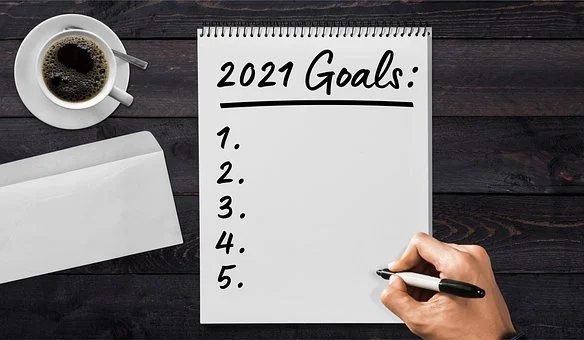New Year’s resolutions have existed for as long as anyone can remember. But why exactly are they so deeply ingrained in the holiday culture? (Photo in the public domain)
The new year has officially arrived and as crazy as last year was, many people are not willing to get their hopes up for anything. On a normal year though there would be posts all over social media about hopes and aspirations for the coming year. New Year’s resolutions have been integral to the holiday for years, but why and how did they even begin?
Ancient History… Literally
Ancient Babylonians were reportedly the first people to make New Year’s resolutions almost 4,000 years ago. According to History, the Babylonians celebrated a 12-day long festival called Akitu. The purpose of Akitu was to crown new kings or reaffirm the leadership of the current one. People made promises to the gods that they would repay all debts and return any borrowed items. These promises are considered to be the beginning of New Year’s resolutions.
Ancient Rome celebrated a similar practice where sacrifices were made to deities along with promises of good conduct. They did this to please the Janus, a two-faced spirit who inhabited doorways and arches. Ancient Romans believe Janus would look back on the previous year and into the future.
Early Christians believed the new year was about acknowledging past mistakes and pledging to do better. In 1740 they began holding night services for new years to serve as a spiritual alternative to the normally rowdy new years celebrations. These services included scripture readings and hymns, but the most important factor was praying and creating resolutions for the coming year.
Modern Resolutions
Over the years, New Year’s resolutions have changed drastically. Instead of the religious roots, the tradition began with, resolutions have become more secular.
Modern-day resolutions are generally focused on self-improvement and achieving new aspirations. People tend to focus on things like fitness and budgeting, things that would overall make them into a better person. But some people focus on making their dreams come true. Traveling more, living life to the fullest, and learning a new skill or hobby are all on go skills top ten most common resolutions list.
In a survey performed by Discover Happy Habits, 31% of the respondents planned on making New Year’s resolutions for 2021. The most popular resolutions were exercising more (50%), losing weight (48%), saving money (44%), and improving diet (39%). These statistics show much more personal-oriented goals compared to the religious ones from centuries before.
LRHS Resolutions
The Leesville community is no exception when it comes to making New Year’s resolutions. When it comes to making goals and aspirations for the new year, Leesville does fall a little bit behind. When 27 students were surveyed about their resolutions, 78% claimed they had no resolutions for the new year.
This shows a little less participation compared to other statistics, so how does Leesville feel about New Year’s resolutions?
Jayden Mancini, a sophomore at LRHS, has no plans for resolutions this year. “It is honestly because I have never stuck to my resolution,” said Mancini. She briefly mentioned never being able to stick to her goals for more than a couple of months, which is relatable for many people.
According to a study by the Journal of Clinical Psychology, only 46% of people who made New Year’s resolutions were successful.
New Year’s resolutions have been one of the biggest traditions of new years for thousands of years. Resolutions have gone all the way from religious offerings to something as simple as wanting to exercise more. And despite a sad record of few people completing their resolutions, it does not seem like the tradition is going away any time soon.

Hi! My name is Cassidy and I am a staff writer for The Mycenaean. I am also a member of Book Club and Tech Theatre.
